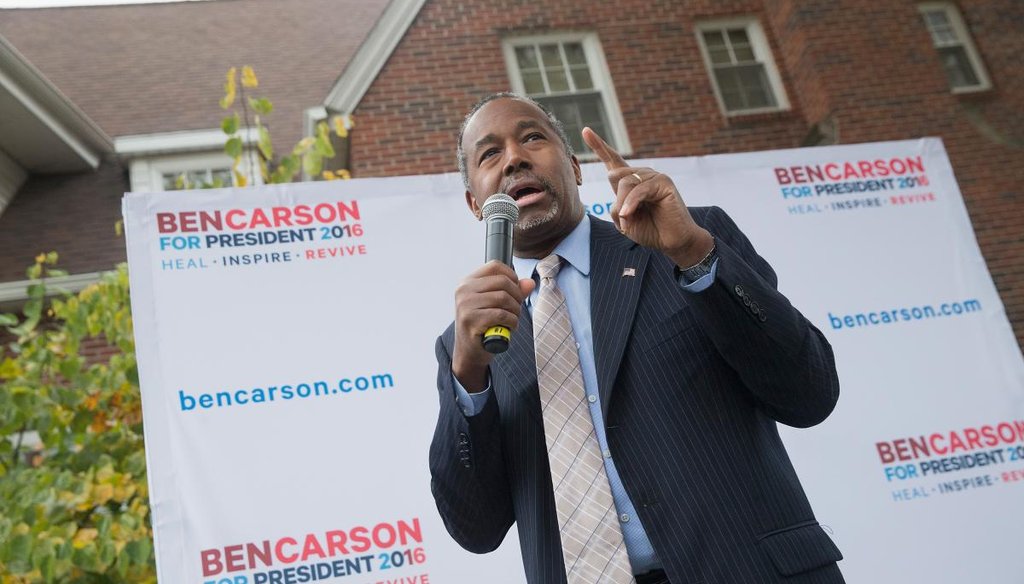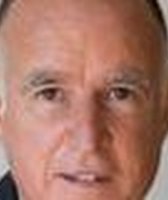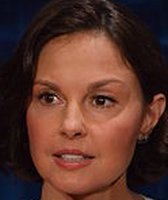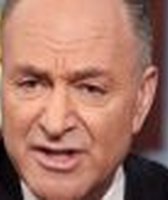Stand up for the facts!
Our only agenda is to publish the truth so you can be an informed participant in democracy.
We need your help.
I would like to contribute

Ben Carson speaks at Iowa State University on Oct. 24, 2015 in Ames, Iowa. A recent poll indicates that Carson has surged past Donald Trump to lead the race for the Republican presidential nomination in Iowa. (Photo by Getty Images)
Ben Carson, who’s leading frontrunner Donald Trump in the polls in Iowa, spent considerable time on the Sunday shows recently hashing out his health care proposals — and it’s still pretty confusing.
Both Meet the Press’s Chuck Todd and Fox News Sunday’s Chris Wallace questioned Carson on his plans to completely overhaul Medicare (the health safety net for older people) and Medicaid (the one for low-income Americans).
Todd and Wallace were both under the impression that Carson wanted to do away with those two programs and replace them with $2,000 health savings accounts.
No, no, said Carson.
"That’s the old plan. That’s been gone for several months now," Carson told Wallace on Oct. 25.
Seven minutes later, Wallace remained flummoxed. "I’m a little bit confused," he said. (Watch the interview here.)
We were too, so we reached out to the Carson camp to get some more details. Doug Watts, Carson’s communications director, told us Carson’s health plan is under review. It will officially be released in a few weeks, and it will be "innovative and understandable at once."
In the meantime, we wanted to sort out what Carson has said so far.
Essentially, Carson is proposing to reallocate government funding into individual health savings accounts. It’s an understandable attempt to move away from socialized insurance towards individual responsibility, experts told us, but it’s "overly simplistic." Carson said he doesn’t want to do away with Medicare, but he hopes people will find the accounts so attractive that they’ll voluntarily leave the program.
The plan in broad strokes
Carson’s overarching plan is to divvy up what we spend on Medicare and Medicaid — $585.7 billion and $449.4 billion respectively in 2013 — into personal health savings accounts, giving individuals control over their own health care and cutting out the middle man, he said.
Carson explained how the accounts would work on Meet the Press:
• "We make health savings accounts available to people from the day that they are born to the day that they die, at which time they can pass it on to their family."
• "We give people the ability to shift money within their health savings account within their family. If you're $500 short, your wife can give it to you out of hers."
• "Now, it doesn't take care of catastrophic health care. But you can buy a catastrophic health care policy. And it's going to cost you a lot less now because the vast majority of things are coming out of your HSA."
In sum, the accounts would accumulate from cradle to grave, and could be supplemented by health insurance for emergencies. And if need be, family members could also transfer funds between HSAs.
To implement his HSA plan, Carson would equally distribute the publically financed Medicaid pool among among the 72 million current recipients. Rather than doling out the money to hospitals and health care providers, each Medicaid recipient would directly get an HSA worth a few thousand bucks. Financing accounts for the 49 million people covered by Medicare would work the same way.
Here are a few comments he made on Fox News Sunday to that effect:
• "The Medicaid budget is $400 billion to $500 billion a year and we have 80 million people who participate. ...With the indigent people, 80 million into $400 billion goes 5,000 times — $5,000 each man, woman and child."
• "You already, if you're a regular person, have a job. And they're already giving you some health benefits. So, instead of that money going into the inefficient system that it goes in now, it gets divided and divvied up into your family's health savings account."
• When asked about how the HSAs would work for retirees, Carson said, "The same dollars that would be going to you through Medicare would go into your health savings account."
This wouldn’t eliminate the safety nets directly, Carson said on Meet the Press, but it would "create a mechanism that allows people to ascend the ladder of success to the extent that they don't need those programs anymore."
Challenges to Carson’s plan
We should again note that Carson’s formal health care plan has yet to be released. Experts said there are certainly merits to the principles behind his ideas: equitably distributing spending, advocating for personal responsibility for care, attempting to address inefficient uses of insurance, etc. But what’s he’s articulated about the plan has experts raising their eyebrows.
First, Medicare recipients are actually prohibited from contributing to HSAs under the current rules laid out by the Internal Revenue Service. Moreover, they may not even want to switch since, by law, HSAs are always paired with high-deductible plans, according to Patricia Barry, the American Association of Retired Persons’ Ms. Medicare columnist.
"Some of those deductibles are very high, more than $10,000," Barry said in an email. "In contrast, Medicare's deductibles are pretty low, especially in the Part B and Part D programs -- respectively $147 and, at maximum, $320 a year in 2015."
Second, the few specifics Carson has laid out are simply not feasible. For one, while birth-to-death HSAs could be "actuarially sound" in theory, the government cannot afford to implement them in practice, experts said. It would be expensive to give the oldest Americans a savings account that would instantly reflect the value of a lifetime of savings.
"If it were possible, and it isn’t, to give people federal health subsidies at day one — assuming we don’t have interest rates for the next 100 years — the idea is you could accumulate some returns on that investment by retirement," said Joseph Antos, who studies health care and retirement policy at the conservative American Enterprise Institute. "You couldn’t just pour the present value of future federal subsidies, because there’s a cash flow problem."
For another, a one-size-fits-all account wouldn’t work for everyone, even paired with emergency insurance (which have high deductibles) and with the flexibility to transfer funds from family members. While the $5,000 annual HSA allotment proposed by Carson is ample for 50 percent of Americans, it’s far from enough for many others.
"If you were in the top 10, 5, or 1 percent (of health care spenders), even if your cousin and your sister gave you some money, that’s not going to help you," said Len Nichols, a professor of health policy at George Mason University. Nichols pointed us to the chart below from National Institute for Health Care Management to illustrate this point.
"If you’re talking about $200,000 procedure, what’s $500 more going to do? Or cancer drugs that are going to be expensive for the rest of your life?" said Gail Wilensky, a health economist who ran Medicare and Medicaid under George H.W. Bush.
That disparity between the needs of the healthiest Americans and those with serious illnesses or injuries, coupled with varying income levels and varying health care needs that come with age, is the fundamental problem with Carson’s plans, according to experts.
"He doesn’t understand the concept of insurance," Wilensky said. "The notion of trying to get people to get more involved and have more control over their health care has a lot to be said, but that does not mean doing away with insurance."
"What he’s trying to do is to give everybody an average, which sounds plausible and fair, but it’s not consistent with the actual skewed distribution of health care spending," Nichols said. "I wouldn’t hold (Carson) up to ridicule because lots of doctors don’t know this, since they deal with individual patients and they don’t see the statistical reality that we health economists do. Health care spending is very, very skewed and that’s why you need insurance."
Carson’s plan would be better off if he adjusted the HSAs for age and spending needs, experts said, but that may just bring him back to square one.
"You’re going to have to make it generous for low income people, which is the whole point of the Medicaid program," Nichols said. "We don’t have to do it exactly now (but) these overly simplistic proposals are not subtle enough to finesse."
"(Havings HSAs) would change people’s behaviors. People will budget their spending more carefully, and some of that turns out to be putting off things we’d rather they didn’t or questioning the use of the services. That’s a valid principle for everybody but you can’t do that unless you have the kind of safeguards you have in Medicare or Medicaid. Basic level of services and benefits have to be provided," Antos said.
Our Sources
NBC, Meet the Press, Oct. 25, 2015
Fox News, Fox News Sunday, Oct. 25, 2015
Email interview with Doug Watts, communications director for Ben Carson, Oct. 26, 2015
Centers for Medicare & Medicaid Services, "NHE Fact Sheet," July 28, 2015
Kaiser Family Foundation, "Total Number of Medicare Beneficiaries," accessed Oct. 25, 2015
Centers for Medicare & Medicaid Services, "Medicaid & CHIP: July 2015 Monthly Applications, Eligibility Determinations and Enrollment Report," Sept. 28, 2015
Internal Revenue Service, "Health Savings Accounts (HSAs)," accessed Oct. 25, 2015
Cornell University Law School, "26 U.S. Code § 223 - Health savings accounts," accessed Oct. 25, 2015
Medicare.gov, "2015 Costs at a Glance," accessed Oct. 25, 2015
National Institute for Health Care Management, "The Concentration of Health Care Spending," July 2012
Kaiser Family Foundation, "Health Care Costs: A Primer," May 1, 2012
Email interview with Patricia Barry, Medicare expert with the American Association of Retired Persons, Oct. 26, 2015
Phone interview with Joseph Antos, scholar in health care and retirement policy at the American Enterprise Institute, Oct. 26, 2015
Phone interview with Gail Wilensky, health economist at Project HOPE, Oct. 26, 2015
Phone interview with Len Nichols, professor of health policy at George Mason University, Oct. 26, 2015








































